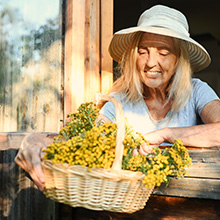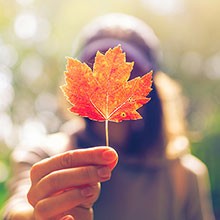From health issues to job losses to businesses shutting down, there’s no denying that the COVID-19 pandemic affected all aspects of our communities. But now what? And what can you do to help others reeling from possible financial setbacks?
Now’s the time to put the “think globally, act locally” mantra into effect. Here are 6 meaningful actions we can each take to help our communities. That way, we can fully recover once the pandemic officially ends.
1. Support small businesses
When you’re supporting small businesses, you’re also supporting your communities by promoting local prosperity. Spending locally spreads funding back through our neighbourhoods. In turn, that leads to the creation of other businesses and services in the community.
No doubt the last few years have been tough on small business owners. They’ve had to endure closures and limitations. As a result, services may not be back to what we’re used to. But there are things you can still do to support local businesses. For example:
- Are you going to place an online order from a big box store? Think about whether there’s a small business near you that offers the same or similar product. Order from the smaller, local store whenever you can.
- Buy gift cards for friends, family and your own future use. Doing so is a helpful way to give the businesses you care about a much-needed influx of cash.
2. Donate to local charities
More people than ever are relying on food banks and shelters. Unfortunately, those service providers are also facing scarce resources and overstretched need.
Now’s the time to set up a one-time or a regular donation to charities working to help your community. Doing so can also help reduce your tax liability and improve your tax return. How? When you file your income tax you:
- can usually claim eligible donations up to 75% of your yearly net income, and
- may qualify for a provincial tax credit.
3. Help people who are searching for jobs
Many businesses closed (either for the short-term or permanently), resulting in job loss. And when schools and daycares closed, many Canadians had to leave their jobs to care for their children or family members.
Have you been fortunate enough to remain employed throughout the pandemic? Your connections may be helpful to people who had to leave their employment during the pandemic.
- Reach out to people in your network who are looking for work. You may be able to connect a job seeker to your employer, or to contacts looking to hire.
- Now that remote or hybrid work is feasible, someone you know might make a career move that wasn’t an option before.
Either way, you may be able to help someone with your resources and connections.
Read more: Tips for coping with job loss
4. Donate blood
Canadian Blood Services gets straight to the point. They say: “Tomorrow, next week and next month, the need for blood is constant.” People from all walks of life can find themselves in sudden need of blood at some point or another.
Donating blood is one of the easiest ways to directly help members of your community for free. According to Canadian Blood Services, men can donate whole blood every 56 days and women every 84 days. People can also donate plasma every seven days, and platelets every 14 days.
5. Check in on elderly neighbours and family members
Social interaction is important to seniors’ longevity and well-being. The pandemic, however, has left many seniors alone and isolated inside their homes.
You can care for the seniors in your life by:
- Calling them regularly or helping them out with errands.
- Going out for walks or coffee with them.
- Volunteering at senior centres (if this is possible in your area). Many community seniors’ organizations are organizing volunteer-run programs to help seniors during this challenging time.
Read more: How to protect seniors from financial abuse
6. Volunteer your skills, resources or time
There are many little ways to help in your community’s recovery:
- Tutoring kids you know in a subject you’re good at can be fun.
- Doing yard work, shovelling snow or walking dogs for neighbours with reduced mobility. Plus, this has the benefit of getting you out of the house.
- Volunteering to deliver prepared meals to housebound people, if you have a car.
The last few years have been tough – especially for business owners. Help yourself, or those near you, understand their financial situation. Because the fact is:
- those who had a financial plan fared better during the pandemic, and
- those who are financially literate (aka, know more about finances), tend to make better decisions about their money.
To help, Sun Life has a series of webinars. Each webinar focuses on a topic that’s part of a successful financial future. You can sign up or watch Sun Life’s free webinars.
And you can talk to – or recommend – a Sun Life advisor to help with unique needs. Find an advisor.
Investing in these local efforts now, in a time of enduring crisis, helps us build stronger community bonds. Then, when the pandemic is officially over, you feel proud of how you helped others thrive.
This article is meant to provide general information only. It’s not professional medical advice, or a substitute for that advice.




